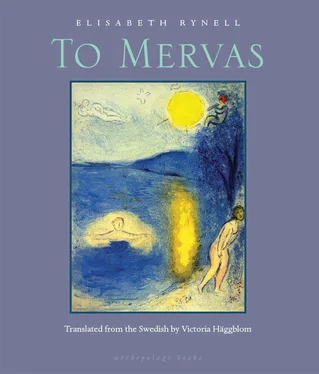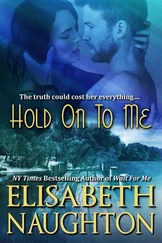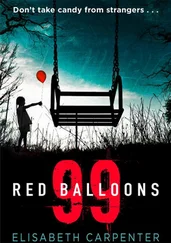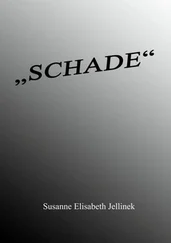The tears running down my cheeks brought me back to the present moment. Annoyed, I wiped my face with the sleeve of my jacket and looked around, suddenly aware that anyone could pass by and see me. I didn’t want to stand there crying in the corridor. What I ought to do was go and ask my father what he was doing here with my son. What right did he have to be here, and why was he sitting there like an idiot with his eyes closed, holding the boy’s hand? But I couldn’t. I just wiped away my tears and stood there. I didn’t know what to do. You can’t love a father like mine. It’s not possible.
At last, Dad opened his eyes; he probably felt he was being watched. I quickly moved away from the window and half-ran to the bathroom. I closed the door behind me without a sound and locked it, but I didn’t turn on the light. Instead, I sat in the dark with my head in my hands and allowed everything that wanted to tear me apart to rise to the surface. Tear me into pieces, I thought, tear me into a million different pieces. I can’t hold myself together anymore.
I sat there for a long time before I turned on the light. Then I carefully washed my hands and face before I opened the door and went out again, firmly determined to go in to the boy whether my father was there or not.
But he’d already left. Perhaps there was something of him left in the room when I entered it; a scent, a presence, I couldn’t quite tell. Later, I thought that maybe everything I’d seen that day might have been a dream. I could have asked the nurse about it, but I didn’t. It felt best if it remained a dream vision.
The next time I found an envelope with my dad’s handwriting on the hallway floor underneath the mail slot, my first impulse was to throw it away. But instead, I put it unread in the drawer where I kept all my letters. Not until many years later, when I learned from my brother that Dad was dying of cancer, did I read it.
“Dearest Marta,” it began. “I don’t want you to be angry with your old father if he were to tell you that he has visited your son in the hospital without asking your permission.”
It was a real letter this time, not just a greeting on a note card.
“But I did it because I’d heard that your little boy was very sick. In a lecture on the radio, I’d heard the theory that a person can transfer their strength and health to another human being if only they want it wholeheartedly and if they hold the other’s hand and put all their energy into it when they meet. I don’t want you to think that your father has gone and lost his wits. Dear Marta, I wanted so much for your son to heal that I was willing to try everything! Perhaps this may seem to you like I’m trying to redeem myself too late, but I want my girl to know that her father deeply regrets the ill deeds he exposed his beloved family to. He understands fully that he can never be forgiven for such acts. But I want you to know, Marta, that I regret what I did, every day, all the time.” It would have been simpler if I’d been able to hate him completely and fully, if I’d been able to feel nothing but hate, the way my sister did. Nor did she ever understand what God had whispered in my ear when we were young — that I had to look, that I had to be a witness. That’s why I went to see Dad on his deathbed and sat with him for a few hours. I’m not entirely sure if he could see me, but I think he knew that I was there even though he lacked the strength to show it.
It was difficult to sit with him. I couldn’t make myself touch him. He died later that night, when I was on my way home on the train. My brother called and told me, the one brother who for some reason had kept in touch with Dad all those years.
It’s been a long time since I wrote anything. But now I’ve terminated the lease on my apartment. I know it’s crazy and I can barely admit to myself what I’m doing, but I think I have to respond to life in some way; it has held me accountable and I have to say something, do something, prove I take it seriously. Inside my head a voice whispers: You’re allowed to die. You can do it. And I’m trying to understand these cryptic words, the strong sense of relief they awaken in me. Suddenly, I’m no longer anxious. Life doesn’t have to be preserved at all costs. But it has to be lived, that’s what the words are telling me. I’ve found the door that leads to life, and to my surprise, I’ve discovered that it’s marked Death. You’re going to die, the voice tells me; therefore, you’re allowed to live.
With respect to practical things, I’m trying to be systematic. I’m going to sell or give away most of what I own. I’ll use the money to buy a car, a used but robust car that I can sleep in if I need to. I’m going to pack some books and papers, letters, photographs, and other memorabilia in the big, coffinlike trunk I inherited from Dad. I will have to ask my sister to keep it in her attic for a while. That’s the hardest part of all these preparations. We’ve barely communicated the last few years, mostly just called on each other’s birthdays. But I have to tell her I’m leaving, even if I won’t specify exactly where I’m going, or why. I’m not going to mention Kosti. Maybe I’ll say that I’m moving to the countryside, that I’ve rented a cottage somewhere, something like that. I know how she’ll look at me when we meet, how her eyes will move across my face while she thinks: My, she’s old. Or: Has she gone crazy again?
I can imagine how I will respond, with a stern gaze and controlled expression: No, I’m not going crazy; I just want you to keep my trunk for me.
When I’ve left, she’ll call some of our siblings that she’s in touch with and tell them:
“Marta’s moving. Somewhere in the countryside.”
Then they’ll talk about me. I’m not entirely sure why, but the mere thought makes me squirm; the fact that they’ll talk about me, mention my name, kind of touch me in my absence. As if by doing so they touched me intimately, touched something that ought to be kept hidden, that no one should deal with except me. My name. My life. My shame. It’s that creature inside me that doesn’t want to be seen. The one that wants to live without a face. I don’t want anyone to touch or poke that creature.
I’m not really leaving because of Kosti. It’s quite plausible he has already left Mervas. But if there’s anything in my life that isn’t broken and ruined, I want to find it and take care of it before I die. Last year, I turned fifty. Many people die in their fifties. It could happen to me. Perhaps I have to be taken off track to find my way, to find what’s right.
This was the feeling I had: that I was running out of time, that it was flowing away from me like blood from a wound. I felt this in the rooms where I had to stay, where I was locked up because my life was fused to the boy’s life. I had to stay where his muteness became my muteness and his immobility became my immobility. In this state, time was bleeding away from me; everything froze and stood still, became a cast of what life should be. It was like living without ever having been born.
I stood looking out the window. It seems to me now I stood there for years. The world outside was also frozen. The protected old fir trees on the grassy slope looked like ancient creatures that had gotten lost in the landscape. They were giant lizards and I was waiting for the moment when they’d break the spell of their inertia and take off. Sometimes when the wind blew hard through the treetops, I could feel a peculiar anticipation. Now, now, soon. .
But the world didn’t move. It was exact and unyielding and didn’t deviate an inch from its set course. I’d watch cars come and go; they occasionally left their places in the rows of parked cars, but they always returned obediently — red, white, orange, and blue cars. Seasons passed through trees and bushes, snow melted and snow fell, the leaf from a potted plant fell off, and dust settled on the windowsill. Time was moving relentlessly, always at work; it flowed and rippled like water under the blanket of snow, emptying itself. And the world stood still and allowed itself to be emptied, a still life, a skeleton, a meticulously assembled sculpture of dead time. I was part of that that sculpture, strapped to the great stationary wheel of frozen time. I had the slow gnawing sensation that this wasn’t where my life was. Somewhere beyond my reach, life was ongoing, my own life as well as everyone else’s. But I wasn’t invited to participate in it. I wouldn’t even have been invited to my own wedding, if I’d had one.
Читать дальше












